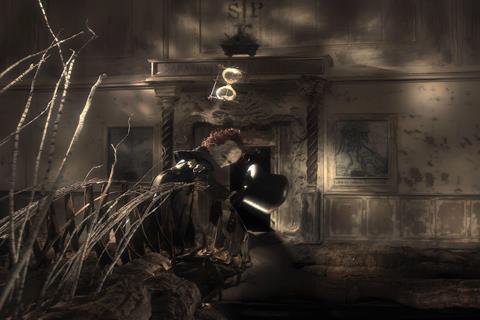The Quay Brothers return with another beguiling, if cryptic, stop-motion animation/live-action hybrid

Dir/scr: Quay Brothers. UK/Poland/Germany. 2024. 76mins
Writer-directors Stephen and Timothy Quay welcome viewers back into their opaque dreamworld with Sanatorium Under The Sign Of The Hourglass, their first feature in nearly 20 years, which defies easy description but on the whole is a transporting, ghostly affair. Ostensibly the story of a man visiting his dying father, this episodic drama — part live-action, part stop-motion animation — is the latest illustration of the Quay Brothers’ considerable visual strengths and nagging narrative limitations. But unlike 2005’s disappointing The Piano Tuner Of Earthquakes, the spell is so potent that the filmmakers’ disinterest in anything resembling a traditional story mostly feels beside the point.
An ephemeral experience that transcends clear logic
Screening in Gionarte Degli Autori, Sanatorium draws inspiration from Polish author Bruno Schulz’s 1937 novel of the same name. The filmmakers’ fans have long anticipated a new feature from the twin brothers, whose esoteric style has been widely copied in music videos and art installations. Still, their return hardly guarantees substantial commercial grosses. Likely too artsy for the midnight-movie crowd and too wonderfully strange and beguiling for mainstream animation audiences, it seems destined to be a niche item that connoisseurs will no doubt treasure.
Set in the same year as the Schulz novel, the film follows the melancholy plight of Jozef (Andrzej Klak), a lonely individual on an abandoned train travelling a forgotten track through Eastern Europe to reach a sanatorium where his ailing, estranged father resides. But once Jozef arrives, he discovers that his father exists in a realm between the living and the dead — and that the sanatorium itself operates outside of conventional concepts such as time.
Now 77, the Quay Brothers remain artists who, like the titular clinic, adhere to their own rules, audience expectations be damned. Sanatorium’s gorgeous handcrafted design and enveloping oddity are initially inviting but, as Jozef begins to learn this hospital’s secrets, the filmmakers begin to amplify the narrative peculiarities, introducing looped sequences and weird asides that create a disorientating effect. It would take a herculean effort to try to unravel precisely what occurs on a story level in Sanatorium, but standalone moments are so arresting that the undernourished plot becomes increasingly less important. What matters is the pleasure of getting lost down the picture’s rabbit hole of grief, family trauma and repressed desire.
It helps that, including credits, Sanatorium only runs 76 minutes, successfully not overstaying its welcome as it weaves an enchanting fantasia. The Quay Brothers’ trademark stop-motion animation is as haunting as ever, the delicate, banged-up puppets suggesting the characters’ emotional fragility and buried pains. That said, when Sanatorium incorporates live-action actors, they too are utilised like figurines meant to do the filmmakers’ bidding. Often, the actors’ faces are slightly blurry, replicating the sensation of being in a dream, an ephemeral experience that transcends clear logic. Deciphering the meaning of, say, a close-up of a corpse’s retina or a shot of a topless woman strolling down a hallway is a fool’s errand. Better to simply relish the incongruous assemblage of unconscious stirrings.
Told in chapters, Sanatorium doesn’t so much build momentum as it drifts from notion to notion, the larger themes left teasingly vague. The Quay Brothers’ cryptic approach can lead to frustration and tedium, with some episodes proving more striking than others. But if the film fails to add up to much, its ability to carry audiences to a universe they have never encountered is sufficiently rewarding. Composer Timothy Nelson adds to the otherworldly vibe, his minimalist tunes playing like a melody embedded in your head after waking.
Production companies: Koninck Studios SpK Galicia Limited, IKH Pictures Production
International sales: The Match Factory, sales@matchfactory.de
Producers: Lucie Conrad, Izabella Kiszka-Hoflik
Cinematography: Quay Brothers (animation), Bartosz Bieniek (live-action)
Production design: Agata Trojak
Editing: Quay Brothers
Music: Timothy Nelson
Main cast: Tadeusz Janiszewski, Wioletta Kopanska, Andrzej Klak, Allison Bell, Zenaida Yanowsky
























